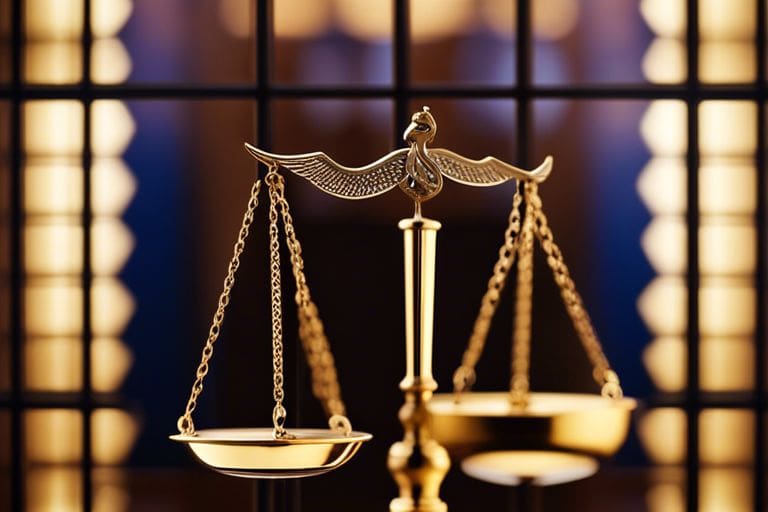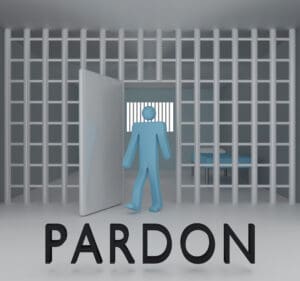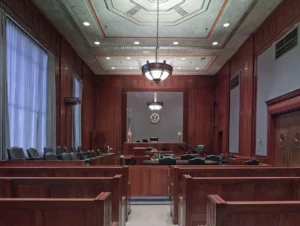Understanding your legal rights and available resources when facing domestic abuse is imperative. This guide sheds light on the crucial steps to protect yourself or a loved one from violence in the home. Explore valuable information on legal avenues, support networks, and ways to seek help in times of crisis. With knowledge and support, we can stand against domestic abuse and reclaim our right to safety and well-being.
Recognizing Abuse
Signs of Emotional Abuse
Your mental well-being is vital in recognizing emotional abuse. Signs can include constant criticism, manipulation, and isolation from friends and family. Emotional abuse can be subtle but has profound effects on your self-esteem and mental health.
For instance, a partner may consistently belittle your achievements, making you feel worthless, or manipulate situations to isolate you from your support network. These tactics can gradually erode your confidence and sense of self-worth, making it difficult to recognize the abuse and seek help.
Identifying Physical Abuse
Physical abuse is one of the most recognizable forms. Identifying it involves looking for unexplained injuries, bruises, or frequent trips to the doctor with vague explanations. It’s crucial to seek help if you suspect physical abuse, as it can escalate quickly and pose a serious threat to your safety.
In many cases, victims might make excuses for their injuries or avoid discussing them out of fear. For example, they might say they are clumsy or had an accident when the injuries are actually inflicted by an abuser. Recognizing these signs and understanding the patterns of physical abuse is the first step toward seeking help and protection.
Legal Protections
Reporting Abuse to Authorities
You have the right to report domestic abuse to authorities, such as the police or a domestic violence hotline. Seeking help and protection for yourself and your loved ones is crucial.
When reporting abuse, it’s important to provide as much detail as possible. This includes describing incidents of abuse, providing evidence such as photos of injuries, and noting any witnesses. Authorities can then take appropriate actions, such as conducting investigations and pressing charges against the abuser.
Obtaining a Restraining Order
Reporting domestic abuse and obtaining a restraining order can provide legal protection to keep the abuser away from you. This court order can prohibit contact and provide safety and peace for victims. Additionally, a restraining order can help in custody arrangements if children are involved, providing a safer environment for all parties.
To obtain a restraining order, you will need to file a petition with the court, detailing the abuse and the necessity of protection. The court may issue a temporary restraining order, followed by a hearing to determine if a long-term order is needed. Legal assistance can be beneficial during this process to ensure that all necessary information is presented effectively.
Support Systems
National Hotlines and Helplines
National hotlines and helplines provide confidential support and resources for individuals experiencing domestic abuse. These services offer a lifeline for those in crisis, connecting them to trained professionals who can offer guidance, safety planning, and emotional support.
For example, the National Domestic Violence Hotline (1-800-799-SAFE) operates 24/7, offering immediate assistance and referrals to local resources. These hotlines are critical in providing an immediate response to individuals in danger and helping them navigate their next steps safely.
Local Shelters and Counseling Services
Local shelters and counseling services in your community are crucial resources for individuals seeking to escape an abusive environment. This network of support can provide temporary shelter, counseling, legal advocacy, and resources to help survivors rebuild their lives free from violence.
Many shelters offer comprehensive programs, including individual and group counseling, legal aid, and job placement assistance. These services aim to empower survivors, helping them regain independence and stability. For example, organizations like Safe Horizon and Women’s Law Initiative provide such holistic support.
Empowerment Through Action
Documenting Incidents and Evidence
For survivors of domestic abuse, documenting incidents and gathering evidence is crucial. Any text messages, emails, photographs, or medical records that document the abuse can be invaluable in legal proceedings.
Keeping a detailed journal of each incident, including dates, times, and descriptions of the abuse, can also strengthen your case. This documentation is essential for obtaining restraining orders, filing police reports, and pursuing legal action against the abuser.
Building a Support Network
A support network can provide crucial emotional and practical support for survivors of domestic abuse. This network can include friends, family, support groups, or professional organizations dedicated to helping victims of abuse.
Joining support groups, either in person or online, can connect you with others who have similar experiences. This shared understanding can be a powerful source of encouragement and advice. Additionally, reaching out to trusted friends and family members can provide immediate emotional support and practical assistance.
Case Studies or Examples
Understanding real-life cases of domestic abuse can provide insight into the complexities and nuances of these situations. For instance, in one case, a woman named Sarah endured years of emotional and physical abuse before seeking help. Her story highlights the importance of recognizing abuse early and the benefits of utilizing legal protections and support networks.
Another case involves John, who faced severe emotional abuse from his partner. Through the support of friends and legal counsel, he was able to obtain a restraining order and start the healing process. These examples underscore the importance of understanding legal rights and accessing available resources.
Comparative Analysis
Comparing domestic abuse laws and resources across different states or countries can shed light on the effectiveness of various legal frameworks. For example, some states have more comprehensive protective orders, while others may offer better support services for survivors.
Analyzing these differences can help identify best practices and areas needing improvement. Understanding these variations can also empower survivors to seek the best possible resources and protections available to them.
Detailed Breakdown of Legal Consequences
The legal consequences for abusers can be severe and include criminal charges, restraining orders, and custody loss. Criminal charges may range from misdemeanor domestic violence to felony assault, depending on the severity of the abuse.
Abusers may also face civil consequences, such as restraining orders that limit their contact with the victim and affect their custody rights. Understanding these legal ramifications can empower survivors to take action and seek justice.
Step-by-Step Guide with Visuals
A step-by-step guide to escaping an abusive relationship can be invaluable. This guide can include visual aids like flowcharts or infographics to illustrate the process. Steps may include recognizing abuse, documenting incidents, seeking legal protection, and accessing support services.
Providing clear, visual steps can help survivors navigate this challenging process more effectively. It can also reassure them that they are not alone and that there are concrete actions they can take to ensure their safety.
Technology and Tools
Technology can play a crucial role in protecting against domestic abuse. Apps like MyPlan and Aspire News offer discreet ways to seek help and plan for safety. These tools provide information, resources, and emergency contacts at the touch of a button.
Moreover, smart home devices and security systems can enhance safety by monitoring for threats and alerting authorities. Understanding and utilizing these technological tools can significantly enhance a survivor’s safety and peace of mind.
Interactive Elements
Interactive elements such as online quizzes or risk assessment tools can help individuals identify the level of danger they are in and the best course of action. These tools can provide personalized safety plans and connect users with local resources.
Additionally, online forums and support groups can offer a sense of community and shared experience, providing emotional support and practical advice. Interactive resources can be powerful tools in the fight against domestic abuse.
FAQ Section – Questions and Answers
What constitutes domestic abuse?
Domestic abuse includes physical, emotional, sexual, and financial abuse, as well as manipulation and control tactics. It can occur in any relationship and affects individuals of all genders and ages.
How can I obtain a restraining order?
To obtain a restraining order, you must file a petition with your local court, detailing the abuse and why protection is needed. The court may issue a temporary order, followed by a hearing to decide on a long-term order.
Legislative Changes and Trends
Domestic abuse laws are continually evolving to provide better protection for survivors. Recent legislative changes may include stricter penalties for abusers, enhanced protective orders, and improved access to support services.
Staying informed about these changes can help survivors and advocates push for better protections and resources. Awareness of legislative trends can also empower survivors to seek the most current and effective legal remedies.
Ethical Considerations
Ethical considerations in domestic abuse cases include respecting the autonomy and confidentiality of survivors. Advocates and legal professionals must prioritize the safety and well-being of survivors while ensuring they are informed about their rights and options.
Additionally, ethical considerations involve addressing systemic issues that contribute to domestic abuse, such as economic inequality and lack of access to resources. Promoting justice and equality is essential in the fight against domestic abuse.
Type of Attorney for Domestic Abuse Cases and How to Find Them on Attorneys.Media
For domestic abuse cases, it is crucial to find an attorney who specializes in family law, particularly those experienced in handling domestic violence cases. These attorneys can provide legal guidance on restraining orders, custody issues, and navigating the criminal justice system.
To find a suitable attorney on Attorneys.Media, start by searching for family law specialists. Look for profiles that highlight experience with domestic abuse cases and client testimonials. Many attorneys also offer initial consultations, which can help you assess their suitability for your case.
Additionally, Attorneys.Media features interviews with attorneys, providing insight into their approach and expertise. Watching these interviews can give you a better sense of which attorney might be the best fit for your needs. Utilize the platform’s search and filtering tools to narrow down your options and find a trusted legal advocate.
References
- National Domestic Violence Hotline. (https://www.thehotline.org/)
- Safe Horizon. (https://www.safehorizon.org/)
- Women’s Law Initiative. (https://www.womenslaw.org/)
- MyPlan App. (https://www.myplanapp.org/)
- Aspire News App. (https://www.whengeorgiasmiled.org/the-aspire-news-app/)
Type of Attorney and How to Find Them on Attorneys.Media
For issues related to domestic abuse and understanding your legal rights, it is crucial to seek the expertise of an attorney specializing in domestic violence law. These attorneys have the necessary knowledge and experience to guide victims through the legal process, ensuring they receive the protection and justice they deserve.
To find a qualified domestic violence attorney, you can utilize the directory available on Attorneys.Media. Begin by visiting the website and exploring the “Domestic Violence” category. This section features profiles of attorneys who focus on legal issues related to domestic abuse. Each profile provides comprehensive information about the attorney’s background, areas of expertise, and contact details, allowing you to choose the best legal professional for your needs.
When selecting a domestic violence attorney, consider their experience in handling cases similar to yours. Look for attorneys with a proven track record of securing protective orders and favorable outcomes for their clients. Additionally, reading reviews and testimonials from previous clients can provide insight into the attorney’s effectiveness and reliability. By leveraging the resources on Attorneys.Media, you can find a knowledgeable and compassionate attorney who will advocate for your rights and help you navigate the complexities of the legal system to ensure your safety and well-being.





















